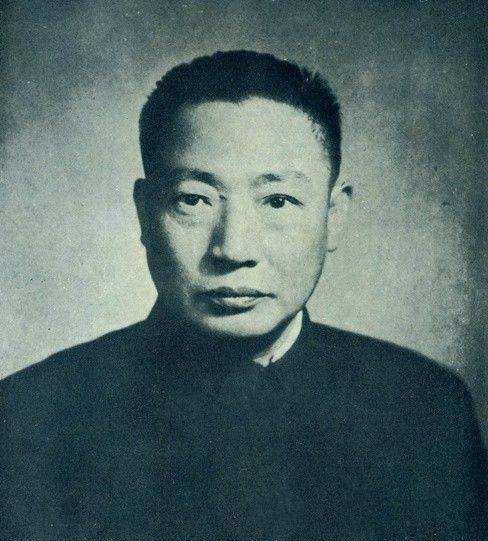Something big happened in Kunming in July 1946.
This major event caused a sensation throughout the country, and people unanimously pointed the spearhead at Lao Chiang and his military commander, who specialized in assassination affairs, and made Old Chiang Kai-shek, who was preparing for the election of a democratic president and a constituent assembly, angry and demoralized, and directly called Mao Renfeng, who was in Nanjing, from Lushan.

Mao Renfeng is also confused, not me, not me looking for someone to do it!
What's the big deal?
That is, Li Gongpu, a famous patriotic democrat in China, was assassinated in Kunming on the evening of July 11, 1946, and after being sent to the hospital, he forgot about it; then on July 15, 1946, the famous poet Wen Yiduo was assassinated and died on the afternoon of the "Last Speech" at the meeting to mourn Mr. Li Gongpu.
Li Gongpu and Wen Yiduo were both leaders of the China Democratic League, one was an educator and the other was a famous poet, and both were anti-Chiang Kai-shek leaders, and they were assassinated one after another in just a few days, which could not help but remind people of old Chiang.
As for old Chiang Kai-shek's irritation, Mao Renfeng knew the severity of it, and no matter who did it, he had to give an explanation to all walks of life in the country, and the people were indignant. So Mao Renfeng sent Tang Zhong, director of the Police Department, and Shen Zui, director of the Major General of the Military Command, to investigate the two incidents.
A few days later, the Yunnan Station of the Military Command reported that both the murderer and the commanders behind the scenes had been found, and the results were shocking.
It turned out that the instigator behind the scenes was Huo Yuzhang, commander-in-chief of the Yunnan Provincial Garrison. He sent Tang Shiliang and Li Wenshan, commanders of the headquarters special service battalion, to do it.
This Huo Yuzhang was a native of Yanling, Hunan, graduated from huangpu in the first phase, and was a backbone general of Chen Cheng's department, successively the commander of the 11th Division, the brigade commander, the commander of the 14th Division, the commander of the 54th Army, the deputy commander-in-chief of the Twentieth Group Army, and the commander-in-chief. After the victory of the Anti-Japanese War, he served as the commander-in-chief of the Yunnan Provincial Garrison.
Then, why did Huo Yuzhang send someone to assassinate a famous person without receiving Shangfeng's instructions? Isn't this causing Trouble for President Jiang?
Later, according to his own account, his motive was mainly to want to be the chairman of Yunnan Province, and in this way to curry favor with Chairman Chiang Kai-shek, because he often heard the chairman of the committee scolding these democrats for helping the Communist Party and not helping him, so Huo Yuzhang wanted to use this move to do his bidding, but the result was premature, self-defeating, and added a crime to the party-state.
After Lao Jiang learned the truth, he summoned Huo Yuzhang to Lushan for a scolding and removed him from his post.
Although Huo Washuzhang was removed from his post, the elder Chiang understood Huo's loyalty and in December 1947 gave him the position of commander of the 16th Appeasement District, which held the military and political power in northern Hunan Province.
Huo later went to Taiwan and died in 1953 at the age of 52.
Reference: Shen Drunk's "What I Saw and Heard in the Reform of War Criminals"
More Exciting Articles:
He was a high-ranking official of the Nationalist Army, who had been executed by Lao Jiang, so why did he make the first contribution to the liberation of the southwest?
He was the deputy commander of the 19th Corps of the Nationalist Army, and at the end of 49, when Chiang Kai-shek had just straightened him out, he was electrified and revolted